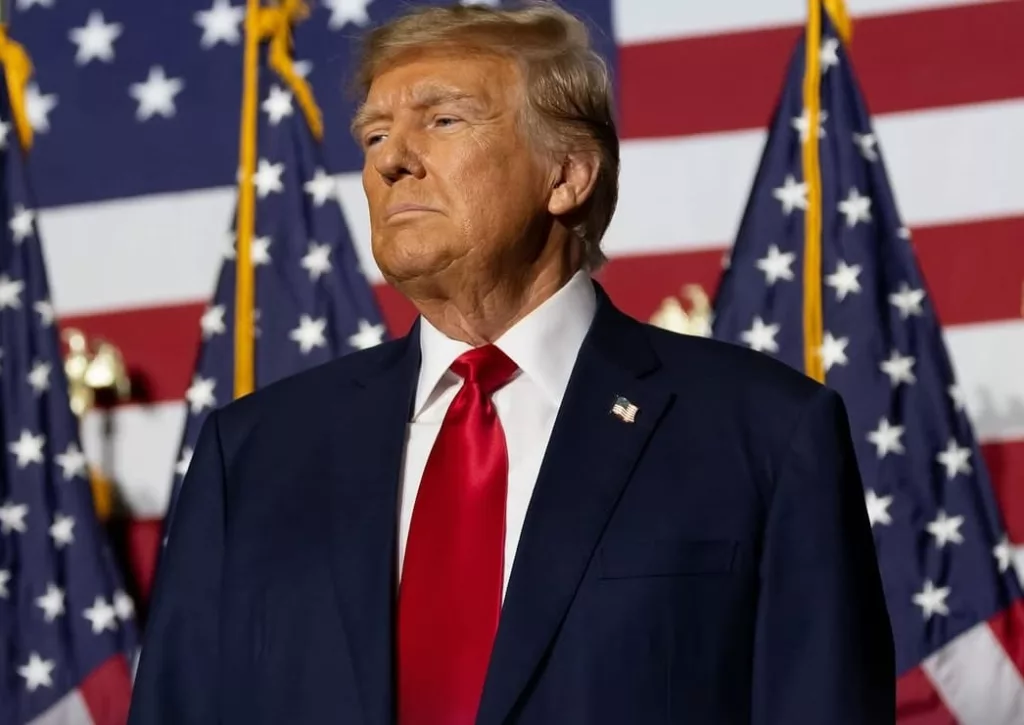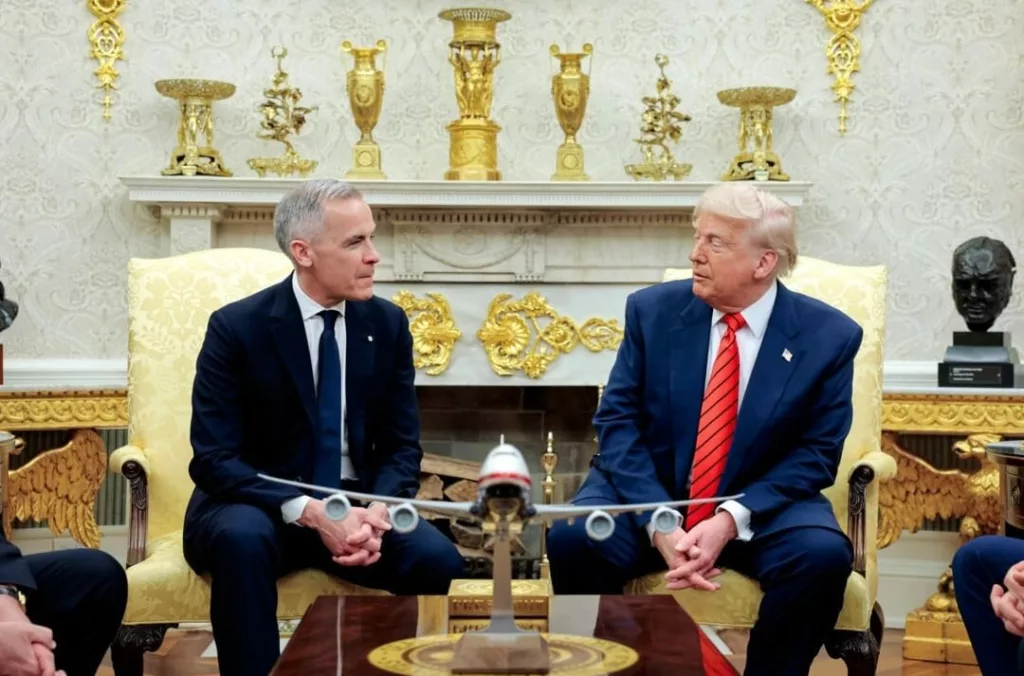
US President Donald Trump, who has become synonymous with the phrase “tariff war”, said that he had “heard” that “India no longer is going to be buying oil from Russia”. Calling it “a good step”, he added, “We’ll see what happens.”
Trump was speaking to reporters in Washington on Friday, about a week before trade tariffs on nearly 70 countries come into effect. The tariffs were supposed to come into effect on August 1, but then were postponed to August 7 (12.01am Washington time).
While many of these tariff rates are reciprocal — the United States is raising export barriers for countries that slap a high tariff on US imports into their own territories — many of them are political, with the US president using tariffs to settle scores where his political intervention has not made much headway.
For India, Trump has set a tariff of 25 per cent, while neighbour Pakistan has got 19 per cent. Quite interesting that Pakistan, which has endorsed Trump’s bid for the Nobel Peace Prize, has still been hit with a double-digit tariff even as the US president talks of developing what he calls Pakistan’s “massive reserves” of oil.
His gripe with India seems to be on two counts: India buying oil from Russia, which in turn has upset Trump by not yielding to his peace “deal” regarding Ukraine; and New Delhi maintaining steadily that there was no Trump-brokered “ceasefire” between India and Pakistan in the wake of the Pahalgam terror attack and consequent Operation Sindoor.
India is also in Trump’s gunsight because of its trade dealings with Iran. Six Indian companies have been sanctioned by the US State Department for “engaging” with the Iranian petrochemical industry. In this context, the Iranian embassy in New Delhi has spoken out against “a modern form of economic imperialism” being practised by the United States of America.
Just two days ago, Trump targeted India and Russia in an astonishing display of undiplomatic language. The US president wrote on Truth Social: “I don’t care what India does with Russia. They can take their dead economies down together, for all I care.”
In a measured response, without even acknowledging Trump, the Indian Ministry of External Affairs reiterated New Delhi’s “time-tested” alliance with Moscow.
Speaking to the media on Friday, Indian MEA spokesperson Randhir Jaiswal said, “Our bilateral relationships with various countries stand on their own merit and should not be seen from the prism of a third country. India and Russia have a steady and time-tested partnership.”
Given this stance, it does not appear likely — let alone being confirmed — that India would stop buying oil from Russia or had already done so. This question was put to the MEA spokesperson, and he declined to confirm it.
Press Trust of India quoted Randhir Jaiswal as saying, “…We take decisions based on the price at which oil is available in the international market and depending on the global situation at that time. As for the specifics of your particular question, I am not aware of it. I don’t have details of these specifics.”
PTI quoted Trump as saying that “[though] India is our friend, we have, over the years, done relatively little business with them because their tariffs are far too high, among the highest in the world, and they have the most strenuous and obnoxious non-monetary Trade Barriers of any country”.
He made a reference to the Russia-Ukraine war in this context, stating, “Also, they (India) have always bought a vast majority of their military equipment from Russia, and are Russia’s largest buyer of energy, along with China, at a time when everyone wants Russia to stop the killing in Ukraine — All things not good!”

Just how politically motivated Trump’s tariff setting is has become evident once again, as the US president has threatened Canada with a tariff of 35 per cent following the North American neighbour’s announcement that it would support the Palestinian demand for statehood, something the US and its ally Israel absolutely do not want.
Both America and Israel boycotted the recent minister-level United Nations meet in New York, in which the UN Declaration said that a “lasting settlement of the Israeli-Palestinian conflict” was to be “based on the effective implementation of the two-State solution”.
Alluding to his Russia-Ukraine peace “deal” negotiations, Trump had said in mid-July, “I use trade for a lot of things. But it’s great for settling wars.”
Stating that he was “very, very unhappy with Russia”, the US president added that “tariffs at about 100 per cent” might be imposed on Russia unless it stopped the war.
Moscow seems completely oblivious to these tariff threats, as its conflict with Ukraine continues.
Now, the US has told the United Nations that it aims to reach a “deal” to end the Russia-Ukraine war by August 8 — that would be just the day after the Trump tariffs come into effect. If and when Russia refuses to bend the knee to America on August 8, what tariff figure can the US president throw at it remains to be seen.


